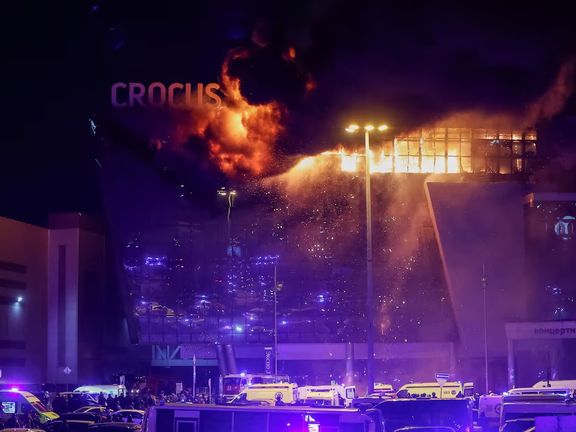Over the past weeks, US intelligence agencies had obtained alarming information about the rising threats of the Afghanistan-based cell of the Islamic State in Russia. The terrorist group is commonly known as ISIS-Khorasan or ISIS-K.
On March 7, the US embassy in Russia issued a security alert, saying it “is monitoring reports that extremists have imminent plans to target large gatherings in Moscow, to include concerts, and U.S. citizens should be advised to avoid large gatherings over the next 48 hours.”
However, Putin's decision to disregard the warning is similar to what took place in Iran recently. More than one week before a double bombing in the Iranian city of Kerman which killed more than 90 people on January 3, the US provided the Iranian government with a private warning about terrorist threats. The warning was ignored by Tehran.
Adrienne Watson, spokesperson for the White House National Security Council, confirmed that the information was shared with Russian officials in accordance with Washington’s “duty to warn” policy.
However, Putin dismissed the warnings as provocative. “All this resembles outright blackmail and the intention to intimidate and destabilize our society,” the Russian president was quoted as saying on March 19.
At least four armed assailants stormed the Crocus City Hall, a popular concert hall, on Moscow’s western edge. The attack claimed the lives of at least 60 people and left 145 injured.
ISIS claimed responsibility for the deadly assault. Following the incident, Mykhailo Podolyak, a top adviser to Ukraine’s presidential office, stressed that Kyiv “has absolutely nothing to do” with the massacre.
Citing Kremlin officials, Interfax news agency reported Saturday that 11 people have been arrested in connection with the attack, including four who were directly involved in it.









